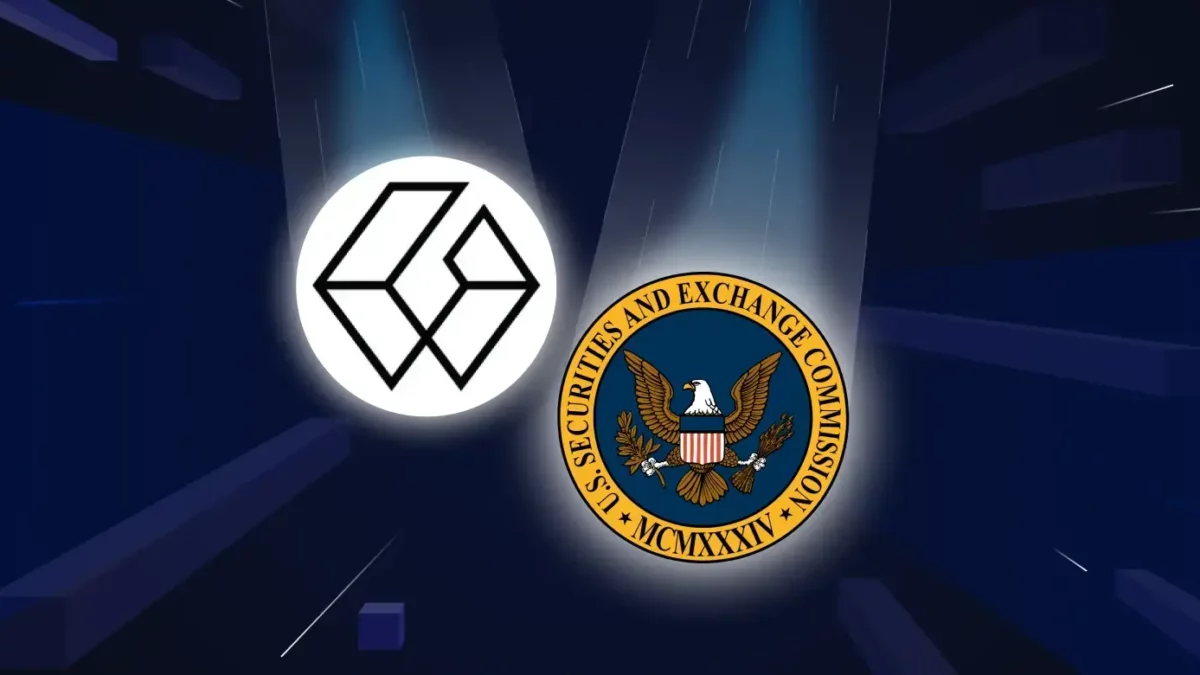Table of Contents
ToggleKey Takeaways:
- Court’s Reversal: The US District of Columbia Court of Appeals’ decision to overturn the SEC’s rejection of Grayscale’s spot Bitcoin ETF application signifies a shift in crypto regulation.
- Appeal Possibility: Both Grayscale and the SEC have a 45-day window to appeal the ruling, potentially leading to further legal proceedings.
- Impact on Other Applications: The ruling’s influence on pending Bitcoin ETF applications, including those from major financial firms, remains a subject of speculation within the crypto industry.
- Market Accessibility: If approved, spot Bitcoin ETFs could offer investors easier access to Bitcoin, potentially driving greater participation in the crypto market.
- Regulatory Evolution: The case highlights the evolving regulatory landscape for cryptos and the increasing importance of regulatory decisions in shaping the crypto investment landscape.
Introduction
In a groundbreaking decision reverberating through the world of cryptos, the US District of Columbia Court of Appeals made a historic announcement on August 29, 2023. In a legal battle closely watched by the crypto and asset management industries, the court ruled in favor of crypto asset manager Grayscale Investments, delivering a significant victory.
At the heart of this landmark case was Grayscale’s persistent pursuit of approval for an exchange-traded fund (ETF) that would track the price of Bitcoin, a move that could have transformative implications for the crypto investment landscape. For years, both the crypto and asset management sectors had sought the green light from the Securities and Exchange Commission (SEC) for a spot Bitcoin ETF. This financial instrument would enable investors to access the world’s largest crypto without direct ownership.
However, the SEC had expressed concerns about the potential susceptibility of spot Bitcoin ETFs to market manipulation. This difference in perspective between the regulators and the industry had set the stage for a legal showdown of epic proportions.
In this article, we embark on a journey to decipher the Grayscale vs. SEC lawsuit, its timeline, implications, and the pivotal court ruling that could reshape the crypto investment landscape.
Additional Read: Ripple vs SEC Lawsuit
What happened to Grayscale Bitcoin Trust?
In the ever-evolving world of cryptos, Grayscale Investments had long been at the forefront, pioneering innovative financial products that provided institutional and retail investors access to the crypto market. One of their most prominent offerings was the Grayscale Bitcoin Trust (GBTC), a trust that held Bitcoin and allowed investors to gain exposure to the world’s largest crypto.
However, Grayscale set its sights on a more ambitious goal: to convert GBTC into a spot Bitcoin ETF.
This would have been a significant milestone for the crypto industry, as it would have opened the door for investors to seamlessly trade Bitcoin on traditional stock exchanges, much like they would with traditional assets.
Grayscale’s application to convert GBTC into an ETF landed on the US Securities and Exchange Commission (SEC) desks. Their proposal sought to utilize the same market manipulation safeguards that had gained approval for Bitcoin futures ETFs. These futures ETFs were designed to track agreements to buy or sell Bitcoin at pre-agreed prices rather than owning the underlying asset.
While the SEC gave the green light to Bitcoin futures ETFs, they remained cautious regarding spot Bitcoin ETFs. The key difference was that the latter involved direct ownership of Bitcoin, which raised concerns about market manipulation and investor protection.
This has been a point of contention in the crypto industry since similar applications from other asset managers, including ARK, Fidelity, and Invesco, had been rejected on investor protection grounds. Unlike the other firms, Grayscale took the bold step of suing the SEC. Since the defendant was a regulatory body, the case was fast-tracked to the appeals court.
Amid this legal showdown, the SEC’s approval of Bitcoin futures ETFs and the rejection of spot Bitcoin ETFs underscored the agency’s cautious stance toward direct ownership of cryptos. This decision’s implications were far-reaching and had significant consequences for the crypto investment landscape. The court’s decision, as we will delve into further in this article, carried profound implications for Grayscale and the broader crypto industry.
What was Grayscale’s Argument?
Grayscale’s legal battle with the SEC revolved around a central argument: the equivalence of surveillance arrangements for Bitcoin futures ETFs and Grayscale’s proposed spot ETF. Grayscale contended that the surveillance measures for Bitcoin futures ETFs, specifically those tracking futures traded on the Chicago Mercantile Exchange (CME), should be deemed satisfactory for their spot ETF. This argument hinged on the fact that both products ultimately relied on the underlying price of Bitcoin.
As the primary venue for Bitcoin futures, the CME maintained vigilant surveillance over market conditions and price movements. This real-time oversight detected and prevented price distortions, including those resulting from manipulative activities.
Grayscale’s lead counsel, Donald Verrilli Jr., presented a compelling case to the court in March, emphasizing that a spot Bitcoin ETF would “better protect investors.” The rationale behind this assertion was grounded in the belief that a spot ETF would provide investors with the added layer of oversight by the CME. Presently, many American investors access Bitcoin through less-established or unregulated exchanges, which may lack the robust surveillance mechanisms of the CME.
Conversely, the SEC contended that Grayscale had not provided sufficient data to establish whether the CME futures surveillance agreement was equally effective in detecting potential manipulation in the spot markets. This difference in opinion formed the crux of the legal dispute between Grayscale and the SEC, with significant implications for the future of Bitcoin investment products.
What was the Court’s Final Decision?
On August 29, 2023, the U.S. District of Columbia Court of Appeals delivered a landmark decision in the case of Grayscale vs. the SEC. In a significant victory for Grayscale, the court’s judges ruled that the SEC had erred in rejecting Grayscale’s application for a spot Bitcoin ETF. The court’s verdict hinged on a crucial finding: Grayscale had convincingly demonstrated that its proposed Bitcoin ETF was “materially similar” to the Bitcoin futures ETFs previously approved by the SEC.
The court’s rationale for this decision revolved around the close correlation between the underlying assets in both types of ETFs: Bitcoin and Bitcoin futures. Additionally, the surveillance sharing agreements between Grayscale’s proposal and the Chicago Mercantile Exchange (CME) futures ETFs were found to be “identical.” The judges emphasized that these agreements should have an equal likelihood of detecting fraudulent or manipulative conduct in the Bitcoin market.
In essence, the court found the SEC’s rejection to be “arbitrary and capricious” because it failed to explain why Grayscale’s ownership of actual Bitcoins, as opposed to Bitcoin futures, would impact the CME’s ability to detect fraud. This decision marked a pivotal moment in the ongoing debate over Bitcoin ETFs and carried profound implications for the crypto and asset management industries.
Future Implications After this Decision
The court’s decision favoring Grayscale has far-reaching implications for the crypto industry and the approval of Bitcoin ETFs. What happens next will shape the future of crypto investment in the United States.
- Potential Appeals: Both Grayscale and the SEC have a window of 45 days to appeal the ruling. If either party chooses to appeal, the case could escalate to the U.S. Supreme Court or undergo an en banc panel review. The SEC’s response to this decision remains a critical factor, as it could significantly impact the trajectory of the case.
- Execution of the Decision: If Grayscale’s victory stands and the SEC decides not to appeal, the court will outline how the decision should be executed. This could involve directing the SEC to approve Grayscale’s ETF application or instructing the SEC to reevaluate the proposal. In the latter scenario, the SEC may reject the proposal based on other grounds.
- Implications for Other Applications: Numerous firms, including major players like BlackRock, Fidelity, WisdomTree, and VanEck, have submitted spot Bitcoin ETF applications for listing on major exchanges like Nasdaq and CBOE. Many of these proposals have involved collaborations with Coinbase to enhance market surveillance. While Tuesday’s ruling doesn’t guarantee automatic approval, it could influence the SEC’s decisions regarding these applications. The crypto industry will closely monitor how the SEC responds and whether this landmark decision paves the way for more Bitcoin ETF approvals.
Conclusion
Grayscale’s victory in the spot Bitcoin ETF case marks a significant milestone in the crypto investments industry. The US District of Columbia Court of Appeals’ decision to overturn the SEC’s rejection demonstrates the evolving landscape of crypto regulation and the potential for greater accessibility to digital assets for investors.
This landmark ruling carries important implications for both Grayscale and the broader crypto industry. It highlights the evolving attitudes toward cryptos and underscores the SEC’s role in shaping the future of crypto-based financial products.
As Grayscale and the SEC weigh their next steps, the crypto community eagerly awaits the potential ripple effects on other pending Bitcoin ETF applications. While this decision doesn’t guarantee immediate approval for other proposals, it could set a precedent that encourages regulatory acceptance of spot Bitcoin ETFs.
Read More: Top Spot Bitcoin ETFs
FAQs
Is Grayscale's spot Bitcoin ETF approved by the SEC?
No, Grayscale's spot Bitcoin ETF application has not received SEC approval as of now. However, Grayscale is actively pursuing regulatory approval for its crypto-based financial products - which is why it had decided to sue the US SEC.
What does this ruling mean for other Bitcoin ETF applications?
The ruling doesn't guarantee approval for other Bitcoin ETF applications, but it could influence the SEC's decisions on pending proposals. Several firms have filed spot Bitcoin ETF applications, and the ruling's impact on these applications is yet to be determined by the SEC.
What happens next in this case?
Both Grayscale and the SEC have the option to appeal the ruling. If no appeal is made, the court will specify how the decision should be executed, which may include instructing the SEC to approve Grayscale's application or revisit it on different grounds.
Related posts
Understanding the Different Types of Cryptos: Coins, Tokens, Altcoins & More Explained
Explore the major types of crypto assets and their unique roles.
Read more
PAWS Telegram Game: The New Tap to Earn Game That Is Beating Hamster Kombat
Discover how to play and earn with PAWS Telegram game.
Read more


